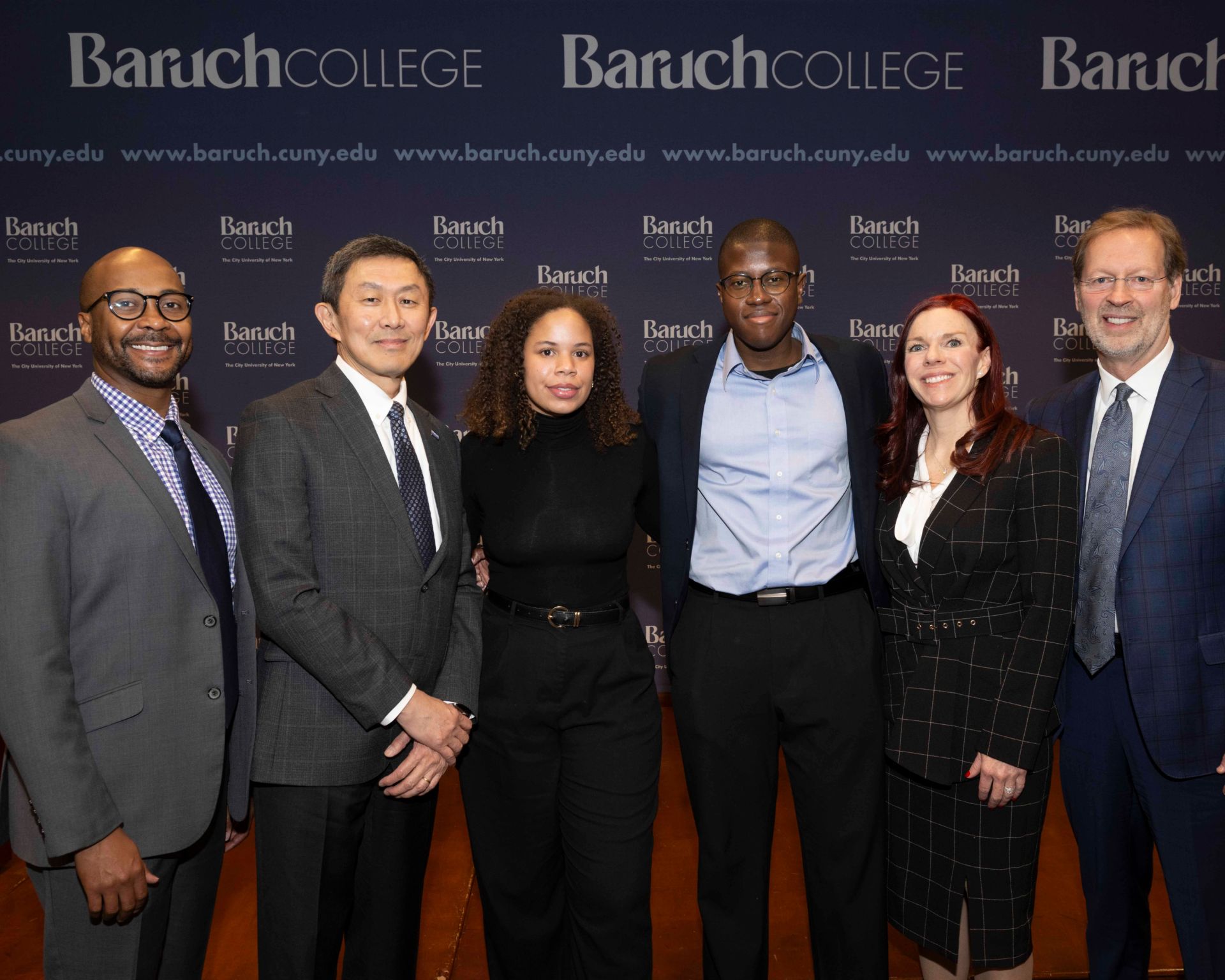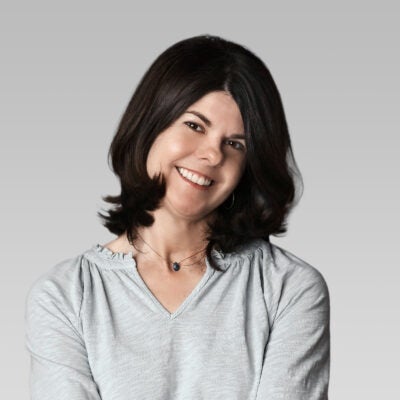Meet Baruch College: the Antidote to Cynicism About Higher Ed
The "Activating Next Gen Talent" event celebrated one of ATI's leading high-fliers
March 11, 2024

Reading Time: 4 minutes
The upper floor of the Baruch College library is filled with flags representing more than 150 countries of origin for many of the school's 16,000 undergraduates. On a crisp February day, a nearby meeting room was also filled, this time with faculty, staff, and supporters eager to celebrate the college's recognition as a stand-out member of the American Talent Initiative (ATI), an alliance of colleges and universities committed to expanding their enrollment and success of lower-income students.
The enthusiasm was well-deserved. Baruch College was selected by Bloomberg Philanthropies and ATI in 2023 as one of the group's 28 high-fliers: institutions that are national leaders in college access and success. Colleges like Baruch offer valuable lessons to their peers-and serve as an antidote to the cynicism that often surrounds discussions of higher education.
"The economic fallout from the pandemic has made it even more important for schools across the country to adopt innovative new ways to attract and retain students from underrepresented backgrounds," said Nick Watson of Bloomberg Philanthropies. "Baruch is a model for what is possible when the work of higher education is student-centered."
The "Activating Next Gen Talent" event included opening remarks and a panel discussion featuring Baruch President S. David Wu; Bank of America's Abigail Hollingsworth; two young alumni; and moderator Dan Porterfield, the Aspen Institute's president and CEO.
President Wu drove home the point of the event.
"Through ATI, Baruch is joining the Aspen Institute, Ithaka S+R, and Bloomberg Philanthropies to build a national, scalable model to level the playing field in accessing high-quality college education," Wu said. "Together, we will restore public trust in the once-shining promise of higher education by creating opportunities, demanding excellence, and delivering outcomes."
That next-gen talent was apparent in the young alumni who participated in the event. Aliou Sidibe earned bachelor's and master's degrees from Baruch's Zicklin School of Business and is employed as a senior technology consultant in cloud and emerging tech at EY. Briana Staten, a senior analyst with Digitas North America, graduated in 2022 with a bachelor's in marketing management and obtained a master's degree in marketing analytics last year.
The young alumni captivated the audience with their insights on how Baruch's staff and faculty prepared them for successful careers. Porterfield also noted that both Sidibe and Staten stayed at Baruch to get their master's degrees, a sign of their trust that Baruch would deliver for them.
"When it comes to fueling aspiration, Baruch College is a beacon to the entire country," Porterfield said. "Your commitment to offering an affordable, high-quality college degree speaks to your dedication and to your alignment toward this goal throughout the institution. This is higher education at its best."
Bank of America Senior Vice President and Foundation Executive Abigail Hollingsworth also applauded the college's achievements, noting the importance of developing an employer-informed pipeline of talent. "Employers and colleges need each other," she told the audience, citing the value of business advisory councils, faculty externships, and leaders on loan to colleges.
A counter narrative to the idea that a bachelor's degree is not worth the cost
While the event was celebratory, both Wu and Porterfield spoke candidly about the public cynicism surrounding discussions on the cost and worth of a college degree.
The counter to that narrative of cynicism? Baruch College's student data and outcomes. At Baruch, 60 percent of the undergraduates seeking financial assistance come from households with an income less than $40,000.
As noted by the panelists, it is no small thing for those families and students to choose to attend college. But the data shows a clear payoff: the average starting salary for graduating Baruch students is $62,000.
"We know that Baruch is showing the way for its graduates to make more money, have more economic security, create more jobs, earn more graduate degrees, participate in civic life, live longer, and be more likely to be optimistic about their future-and that's just the beginning," Porterfield said.
While Baruch has always enrolled talented students no matter their income, they've seen the number of students receiving Pell Grants increase by more than 1,600 since 2015. Baruch shines in affordability and quality.
- 63 percent of Baruch students who apply for financial aid receive Pell Grants totaling more than $43 million in support.
- Financial aid, coupled with vital assistance from the Baruch College Fund, means that more than 80 percent of graduates leave college with no federal student loan debt.
- Baruch College has earned top rankings for its academics; Money's "Best Colleges in America" ranks it the top public college in New York and number five in the Northeast.
"We share a goal: to ensure that students who are traditionally underrepresented and underserved have access to a world-class education while developing top-notch career and professional acumen and a conviction for lifetime learning-which prepares them to be creative, empathetic, and resilient leaders in our world of accelerating changes," Wu said. "Together, we're bringing big ideas to the table, and I know Baruch has a great deal to offer."
Baruch's Lessons for the Field
Embracing strategic public and private partnerships, Wu cited ATI, a partnership with Bloomberg Philanthropies, Ithaka S+R, and the Aspen Institute, as one effort that helps Burach meet key challenges head-on and amplify its success. Private sector partners like Bank of America, with a focus on creating employer-informed pipelines of talent for family-sustaining jobs, are also essential.
A commitment to an excellent education at an affordable cost: Baruch is committed to making comprehensive financial aid available to its students in the form of scholarships, grants, work-study, and federal loans.
Student success is everyone's responsibility. This means the administration, the staff, and the faculty. To quote President Wu: "No one is exempt."
A focus on innovation: Learning goes beyond the lecture halls, and students gain experience working with businesses and organizations in New York City, an epicenter of opportunity.
Building strong partnerships with high schools and community colleges: These usher students onto a seamless pathway to graduation and lead to career success.
Ensuring Baruch students remain ahead of the curve: That applies to the technologies, advancements, and industry disruptions that drive the economy-from climate change and ESG investing to generative AI and beyond. It means preparing students and educators for a future that may be drastically different from what we presume.
Please contact Mary Gorman for more information on Baruch College's model of access and success. Learn more about ATI's other high-flier colleges here.



